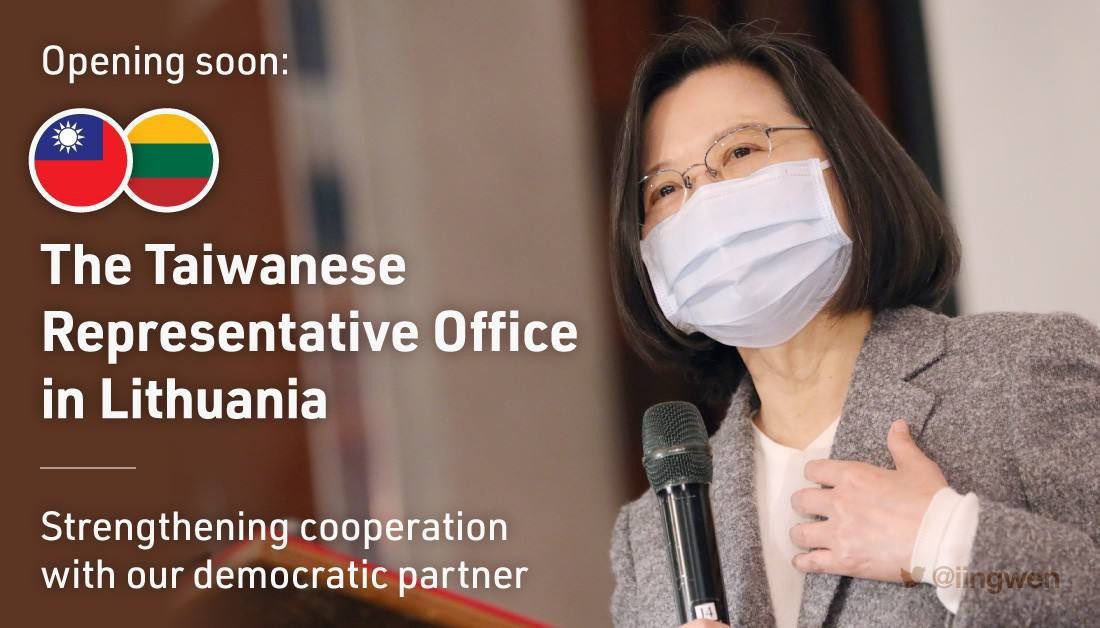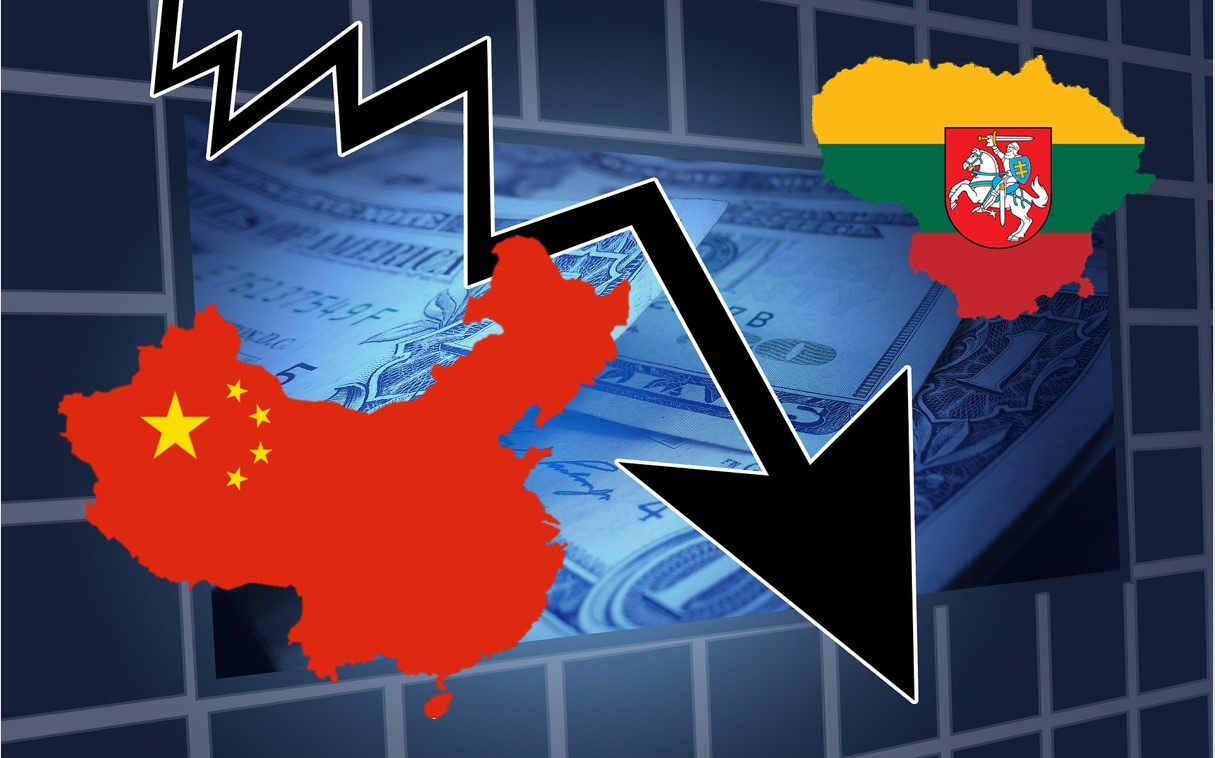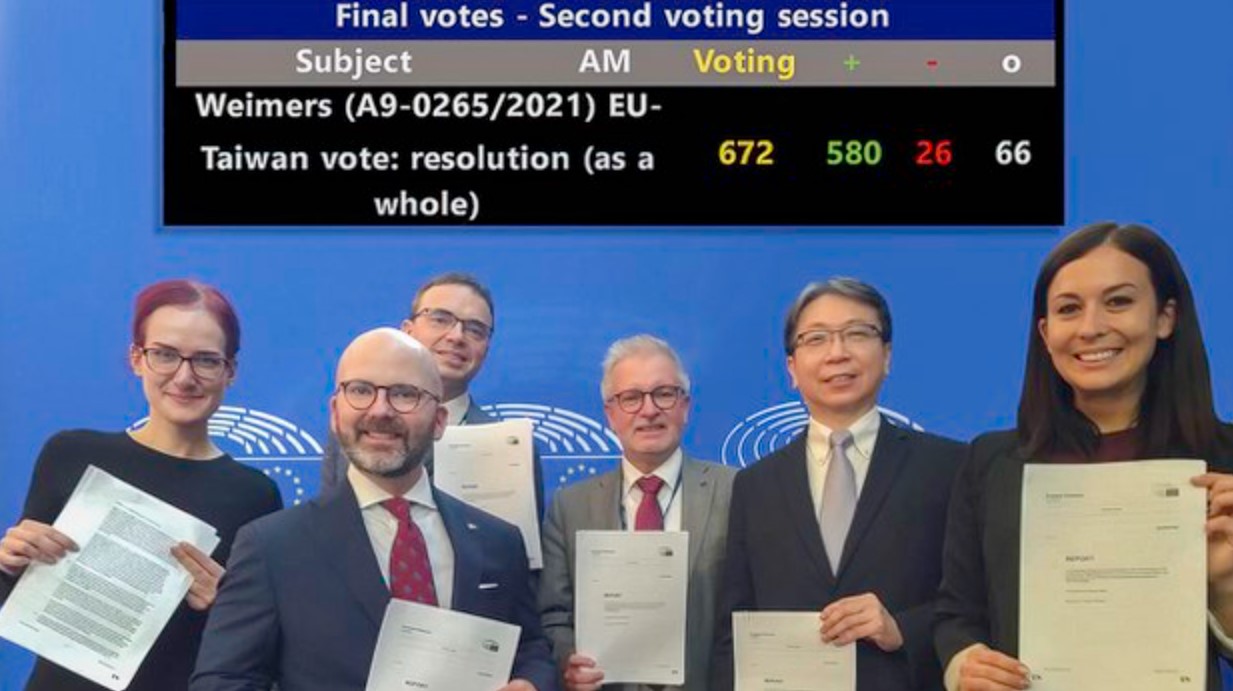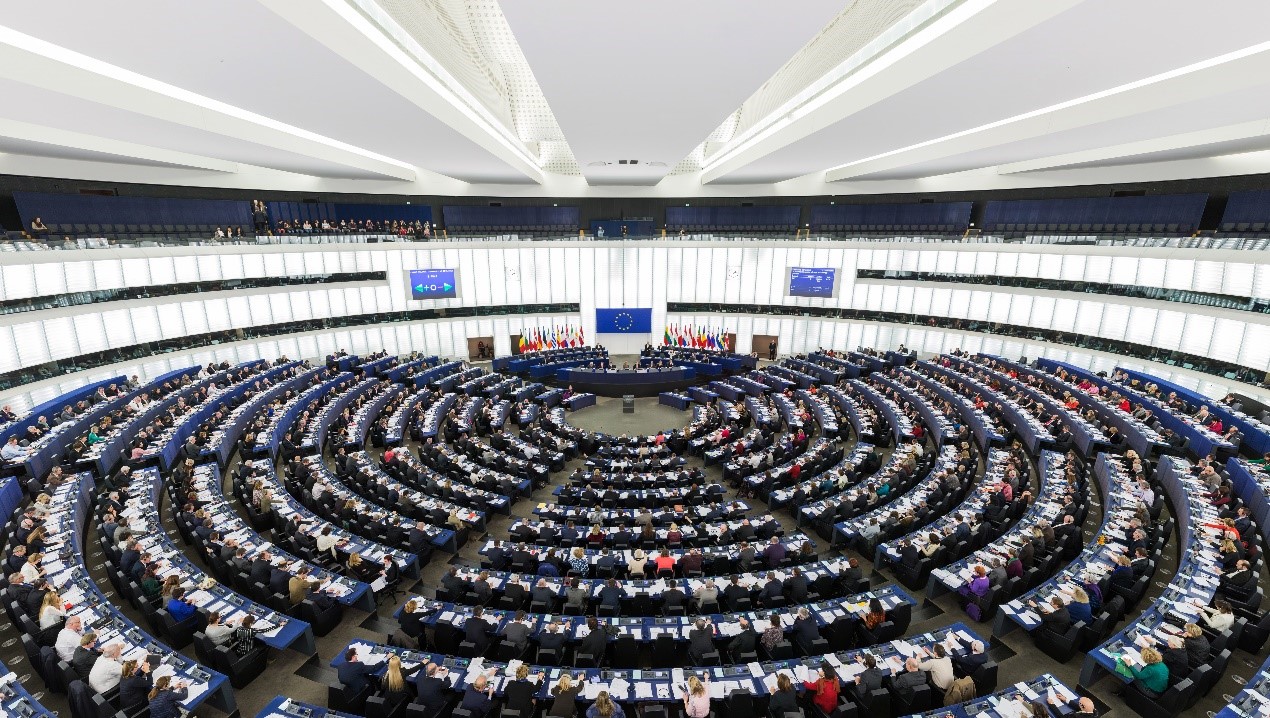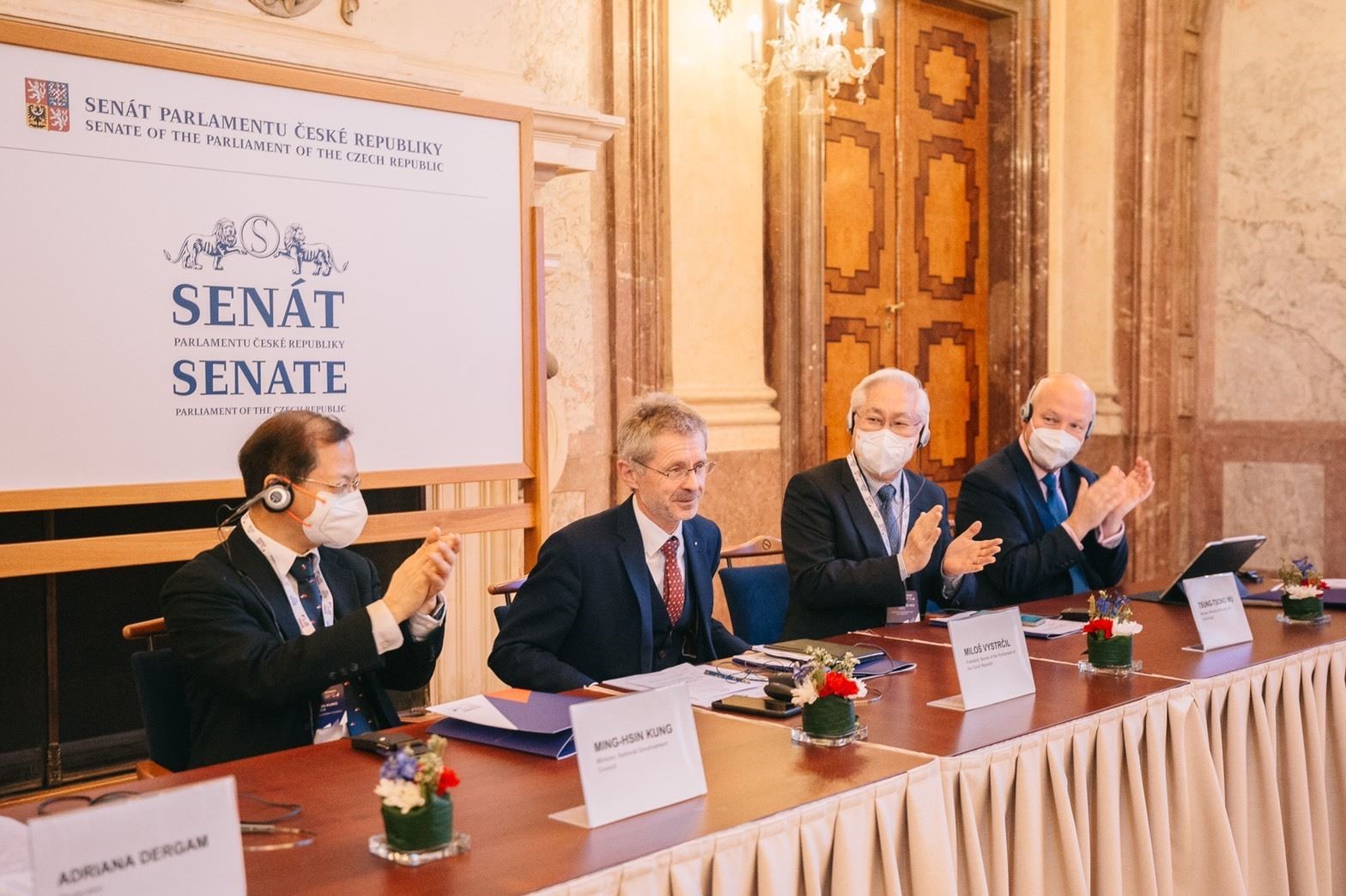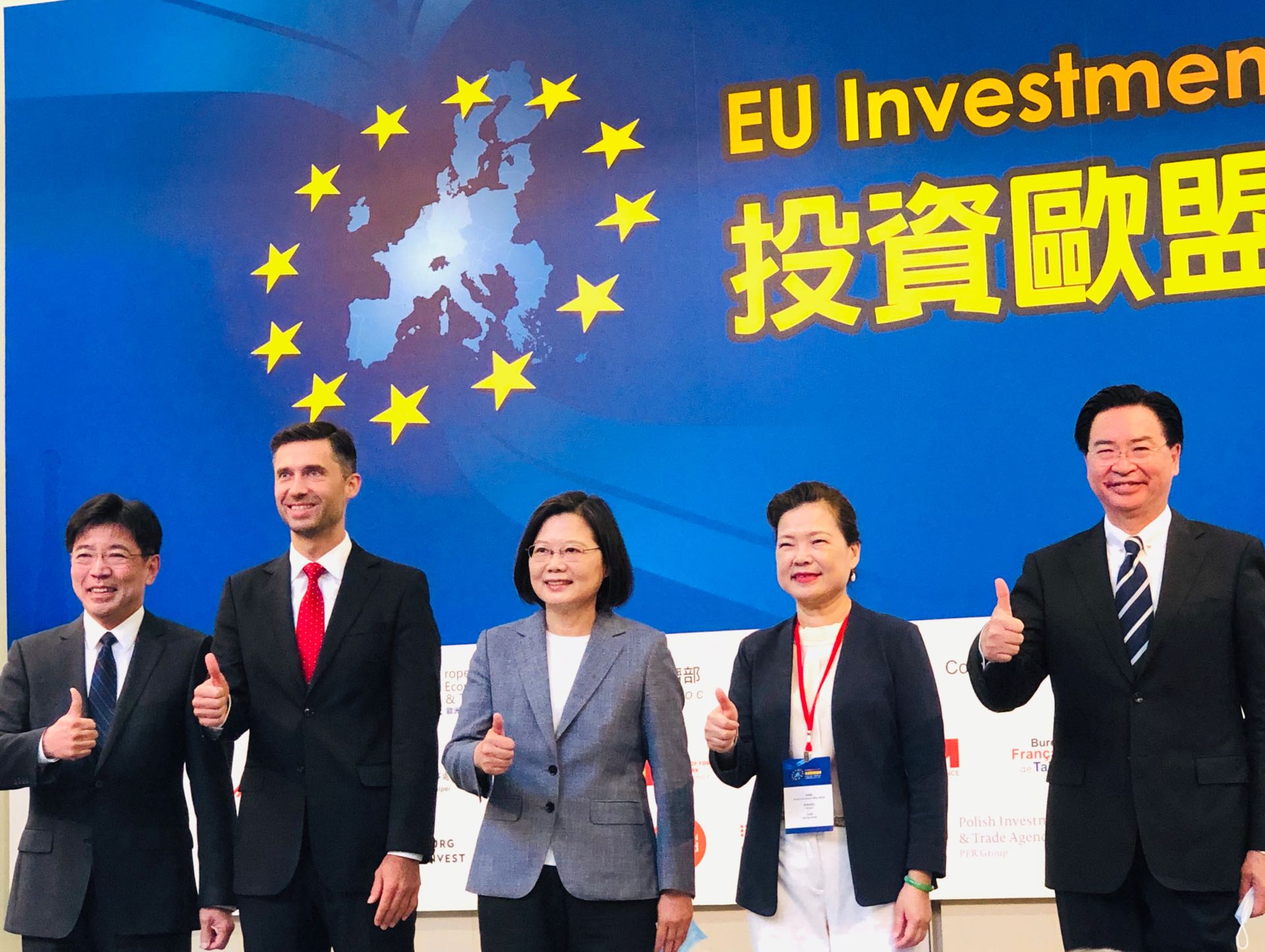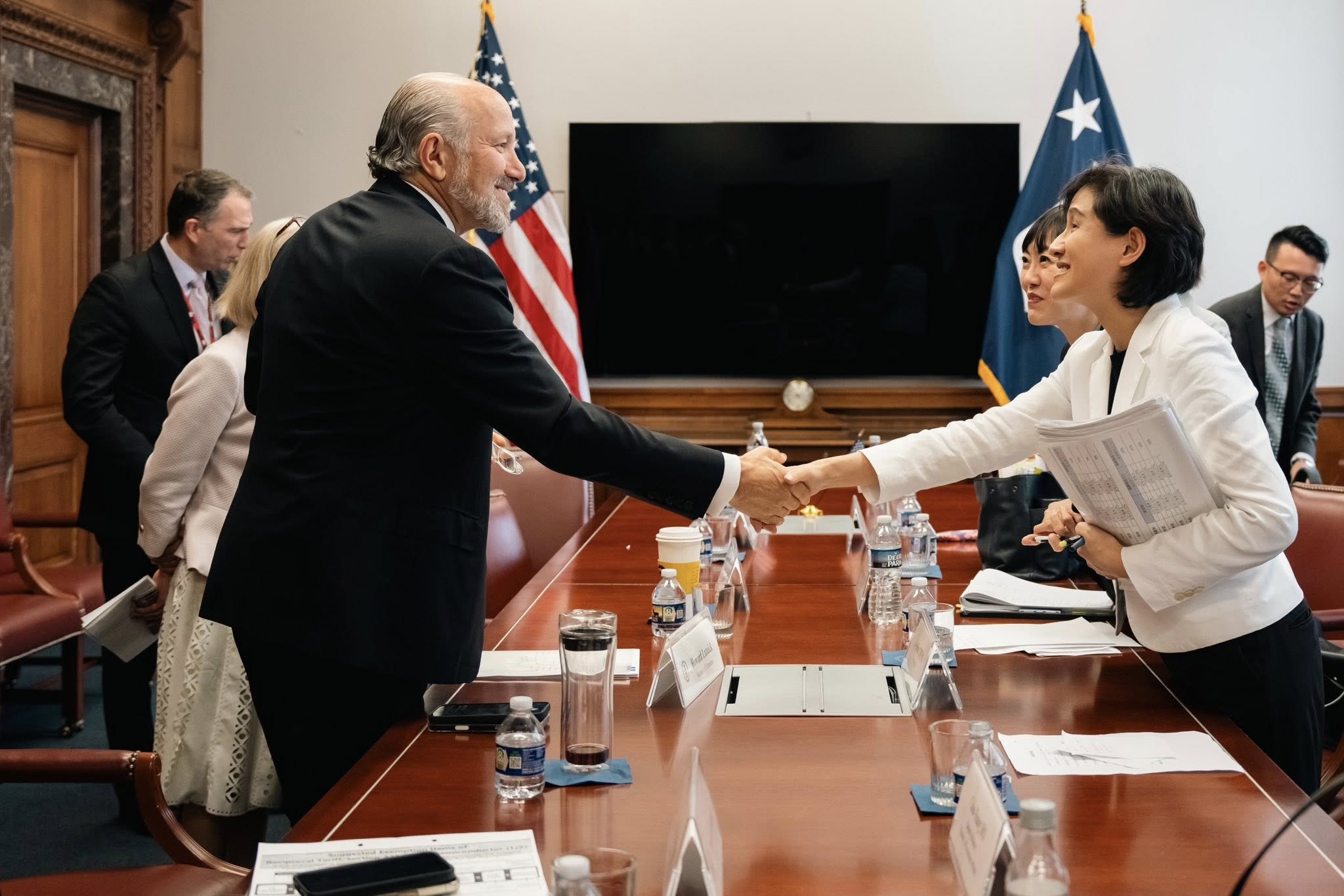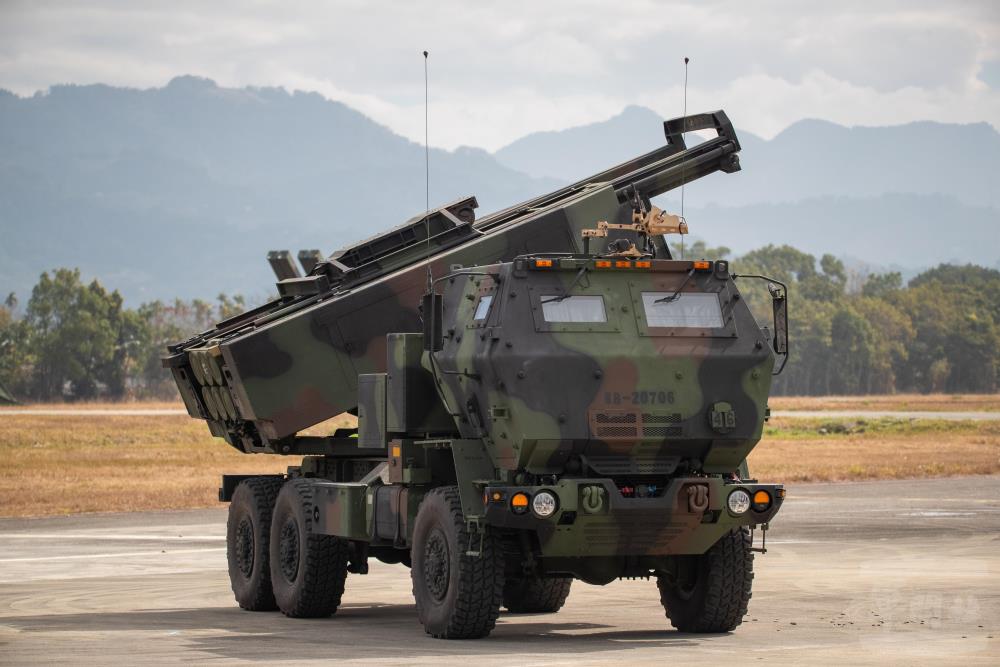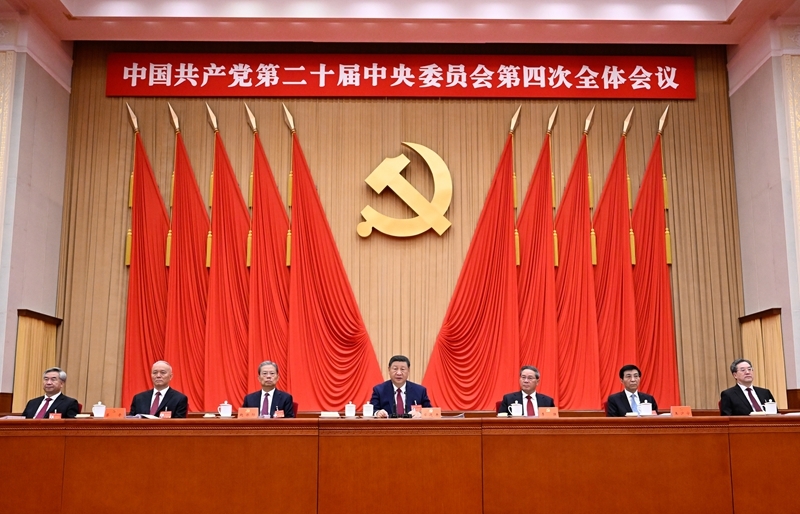Taiwan to Open Representative Office in Lithuania: A Breakthrough in Bilateral Relations
Taiwan’s Ministry of Foreign Affairs (MOFA) on July 20 announced that Taiwan was set to establish a “Taiwanese Representative Office in Lithuania,” the first of its kind in Europe to use the name “Taiwanese.” Picture source: Tsai Ing-wen, July 20, 2021, Twitter, https://twitter.com/iingwen/status/1417358129767976960/photo/1
Prospects & Perspectives 2021 No. 40
Taiwan to Open Representative Office in Lithuania: A Breakthrough in Bilateral Relations
By Sanyi Yang
August 2021
Taiwan’s Ministry of Foreign Affairs (MOFA) on July 20 announced that Taiwan was set to establish a “Taiwanese Representative Office in Lithuania,” the first of its kind in Europe to use the name “Taiwanese.” This development caps the substantial progress that has been made between Taiwan and Lithuania over the past three decades since Lithuania gained its independence in 1990. Why are these two countries, one located in the Baltic Sea region, the other in East Asia, now seeking to expand their diplomatic ties amid great power competition?
Taiwan and Lithuania: Parallels in History and Geopolitics
Lithuania is an East European country with a population of 2.8 million covering an area of 65,300 km². Its history dates back to 1,000 years ago when local tribes settled there. From the 9th to the 11th centuries, Lithuania expanded its territories and reached its Golden Age between the 16th and 17th centuries during the Polish–Lithuanian Commonwealth. In October 1939, Lithuania was incorporated into the Soviet Union and ceased to exist on the political map. It declared independence in 1990, one year before the collapse of the Soviet Union.
Lithuania shares many similarities with Taiwan in terms of its history and geopolitics: both are small- or medium-sized countries straddling a fault line where land powers and maritime powers collide and engage in continuous competition. Taiwan faces a rapidly growing China which aims to expand its influence in the Indo-Pacific region while Lithuania must conjugate with a Russia that is pursuing its traditional zone of influence in the eastern parts of Europe. In the face of this geopolitical competition, as a member state of the European Union (EU) and the North Atlantic Treaty Organization (NATO) Lithuania plays a proactive role in political and military integration within the Western hemisphere. Lithuania participates in NATO’s military exercises around the Baltic Sea and engages in intelligence-sharing with other NATO members. Equally significant is Lithuania’s political integration into the EU. Lithuania’s adoption of the Euro as its currency was a milestone that symbolized irreversible integration, in sharp contrast with many other Central and Eastern European Countries (CEEC) that still refuse to do so.
Besides history and geopolitics, what draws Lithuania to Taiwan and other small or medium states is its embrace of democracy and rule of law, two fundamental elements of Lithuania’s foreign policy. In June 2020, Lithuania openly opposed the Hong Kong National Security Law in a statement at the United Nations Human Rights Council. Furthermore, in May 2021 the Seimas (the Parliament of Lithuania) passed a resolution recognizing the genocide of the Uyghur minority in China and called on the Chinese government to revoke the Hong Kong National Security Law.
At the same time, Lithuania adjusted its foreign policy toward Taiwan: it donated 20,000 doses of the AstraZeneca COVID-19 vaccine to Taiwan in July 2021, and announced it would open a representative office in Taiwan.
Is China Losing Appeal in Central and Eastern European Countries?
In 2012, an initiative to promote multilateral relations between China and Central and Eastern European Countries (also known as the “16+1”) was received with open arms. However, a few years later Beijing’s promises remained just words, and gradually some of the 16+1 countries went from “China’s gateway to Europe” to “disappointment toward China.”
In order to keep the 16+1 agreement (by then known as the 17+1 after Greece joined the scheme in 2019) alive, the Chinese government decided to upgrade the mechanism. On February 9, 2021, President Xi Jinping himself represented China for the first time in his country’s efforts to engage the region. However, enthusiasm among CEEC countries was lackluster, with Bulgaria, Estonia, Latvia, Lithuania, Romania, and Slovenia only sending lower level officials (ministers rather than presidents or prime ministers) to the meeting.
It is now easy to perceive the rapidly growing skepticism about China across the Baltic region. Lithuania’s announcement of its desire to exit the 17+1 initiative and plans to open a trade office in Taiwan are seen as important milestones in the history of the 17+1. Estonia and Latvia have warned against Beijing’s ostensible desire to divide-and-conquer Europe by negotiating with smaller blocks, which threatens to create divisions within Europe itself and between Europe and the U.S. Beyond the Baltic region, Romania has also cancelled a nuclear reactors deal with China, while Czech political parties agreed that Chinese companies should not participate in a tender for the construction of a new nuclear power plant. It seems that China is losing its charm in the region.
How Far Can Taiwan and Lithuania Go?
Taiwan and Lithuania share common values and geopolitical concerns: both hold democracy and the rule of law among their core values and face enormous hostile enemies. Geopolitical proximity to their external competitor and the sense of threat have drawn Taiwan and Lithuania into a community beyond their immediate neighborhood. This was demonstrated by Taiwan’s gift of 100,000 facial masks to Lithuania as the coronavirus pandemic hit in early 2020, and Lithuania’s donating 20,000 doses of vaccines when Taiwan desperately needed them. The donation of 20,000 doses of vaccines to Taiwan, though seemingly small, nevertheless represents one tenth of the total 200,000 doses it has gifted to several other countries (100,000 to Ukraine, 15,000 to Georgia, 11,000 to Moldova and the remainder to countries in the Caucasus). Despite the political costs of defying China, Vilnius has demonstrated its desire to take the lead in a foreign policy shift in the Baltic region and its surroundings. On August 10, the Chinese foreign ministry announced that China was recalling its ambassador to Lithuania and ordered the Lithuanian ambassador in Beijing to return home.
The ruling coalition Homeland Union-Lithuanian Christian Democrats, the Freedom Party and the liberal movement are all collaborating. The reciprocal trade and representative offices are about to open; bilateral economic ties, while low, are nevertheless complementary. With this momentum, it is expected that Taiwan and Lithuania will continue to deepen their relationship in the near future.
(Dr. Yang is Professor, Graduate Institute of International Politics, National Chung Hsing University )


